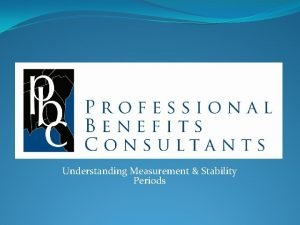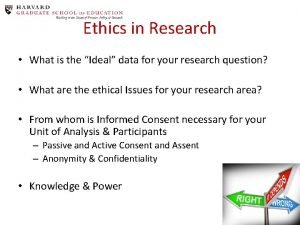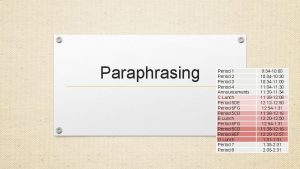EQ vs IQ Casandra Arizmendi 5 th period








- Slides: 8

EQ vs IQ Casandra Arizmendi 5 th period

What is EQ? ❖ Emotional intelligence (EQ) is the ability to identify, use, understand, and manage emotions in positive ways to relieve stress, communicate effectively, empathize with others, overcome challenges, and defuse conflict.

What is IQ? ❖ a number representing a person's reasoning ability (measured using problem-solving tests) as compared to the statistical norm or average for their age, taken as 100.

8 ways to grow your EQ ➔ ➔ ➔ ➔ Don't interrupt or change the subject. Don't judge or edit your feelings too quickly. See if you can find connections between your feelings and other times you have felt the same way. Connect your feelings with your thoughts. Know when enough is enough. If you don't know how you're feeling, ask someone else Listen to your body. Ask yourself: How do I feel today?

Emotional Intelligence video This video shows how to improve your EQ

Article ❖ Self-awareness – You recognize your own emotions and how they affect your thoughts and behavior, know your strengths and weaknesses, and have self-confidence. ❖ Self-management – You’re able to control impulsive feelings and behaviors, manage your emotions in healthy ways, take initiative, follow through on commitments, and adapt to changing circumstances. ❖ Social awareness – You can understand the emotions, needs, and concerns of other people, pick up on emotional cues, feel comfortable socially, and recognize the power dynamics in a group or organization. ❖ Relationship management – You know how to develop and maintain good relationships, communicate clearly, inspire and influence others, work well in a team, and manage conflict. ❖ Your relationships. By understanding your emotions and how to control them, you’re better able to express how you feel and understand how others are feeling. This allows you to communicate more effectively and forge stronger relationships, both at work and in your personal life. ❖ Your mental health. Uncontrolled stress can also impact your mental health, making you vulnerable to anxiety and depression. If you are unable to understand manage your emotions, you’ll also be open to mood swings, while an inability to form strong relationships can leave you feeling lonely and isolated. ❖ Your performance at work. Emotional intelligence can help you navigate the social complexities of the workplace, lead and motivate others, and excel in your career. In fact, when it comes to gauging job candidates, many companies now view emotional intelligence as being as important as technical ability and require EQ testing before hiring. ❖ Your physical health. If you’re unable to manage your stress levels, it can lead to serious health problems. Uncontrolled stress can raise blood pressure, suppress the immune system, increase the risk of heart attack and stroke, contribute to infertility, and speed up the aging process. The first step to improving emotional intelligence is to learn how to relieve stress. ❖ Stay focused in the present. When you are not holding on to old hurts and resentments, you can recognize the reality of a current situation and view it as a new opportunity for resolving old feelings about conflicts.

5 Good and Bad examples of EQ BAD not being able to stay focused Doesn't take responsibilities for his/her feelings; but blames you or others for them. Can't put together three word sentences starting with "I feel. . . " Can't tell you why they feel the way they do, or can't do it without blaming someone else. Has no empathy, nor compassion GOOD I am able to admit my own mistakes. My impulses or distressing emotions don't often get the best of me at work. I can smoothly handle multiple demands and changing priorities. I usually stay composed, positive, and unflappable even in trying moments. I seek fresh perspectives, even if that means trying something totally new.

EQ test I got a 78 out of 100 3 ways I can improve my EQ is by read a book about sympathy Listen, Listen and more listening Staying on task















